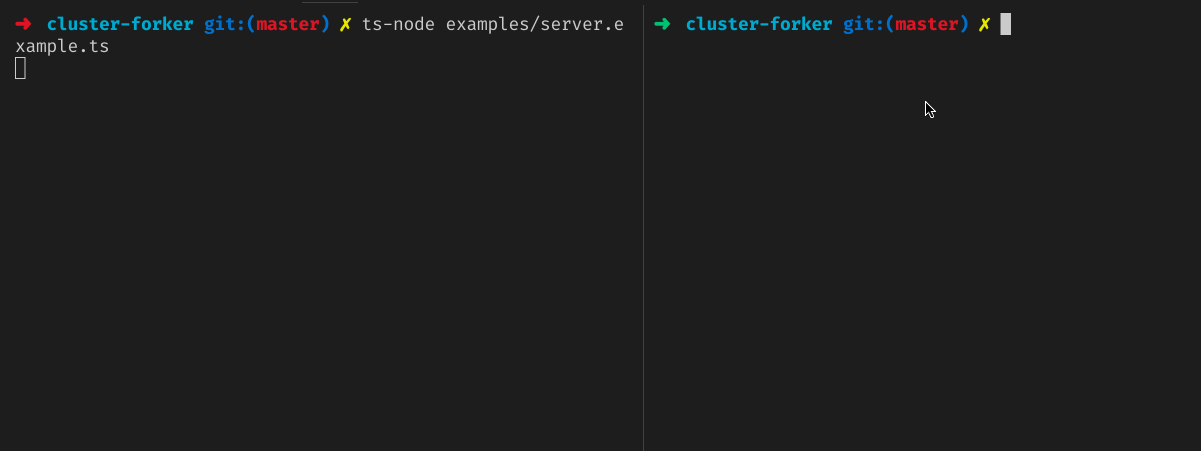easy node clustering
A single instance of Node.js runs in a single thread. To take advantage of multi-core systems, the user will sometimes want to launch a cluster of Node.js processes to handle the load.
The ClusterForker allows easy creation of child processes that all share server ports.
-
Written in Typescript
-
Wrapper for the
clustermodule -
Simple API
-
Lazy, doesn't actually fork before the
runmethod is called -
The worker processes are spawned using the child_process.fork() method, so that they can communicate with the parent via IPC and pass server handles back and forth.
npm:
$ npm install cluster-forkeryarn:
$ yarn add cluster-forkereasy node clustering
//index.js
const { Cluster } = require('cluster-forker');
let superCluster = new Cluster();
let superCluster = new Cluster();
superCluster
.master( ( cluster ) => {
// This block runs only in master worker
console.log('master is running');
} )
.fork( ( cluster ) => {
http.createServer(function(req, res) {
res.writeHead(200);
res.end('process ' + process.pid + ' says hello!');
}).listen(8000);
} )
.on('online', function(worker) {
console.log('Worker ' + worker.process.pid + ' is online');
})
.limit( 4 )
.forkOnExit((worker, code, signal) => {
console.log('started new worker fork');
})
.onExit( ( worker, code, signal ) => {
console.log('Worker ' + worker.process.pid + ' died with code: ' + code + ', and signal: ' + signal);
console.log('Starting a new worker');
} )
.run() // Runs the cluster and begins forking$ node index
> master is running
> Worker 31889 is online
> Worker 31890 is online
> Worker 31891 is online
> Worker 31892 is online
MIT © Nivrith



